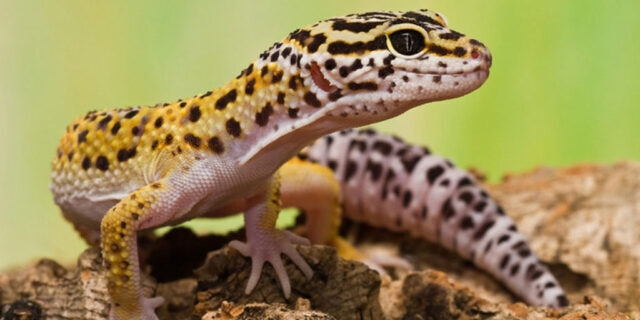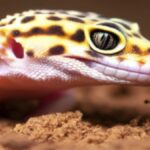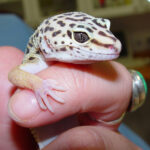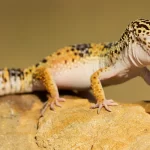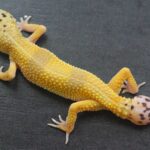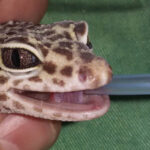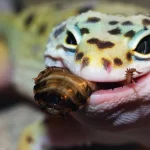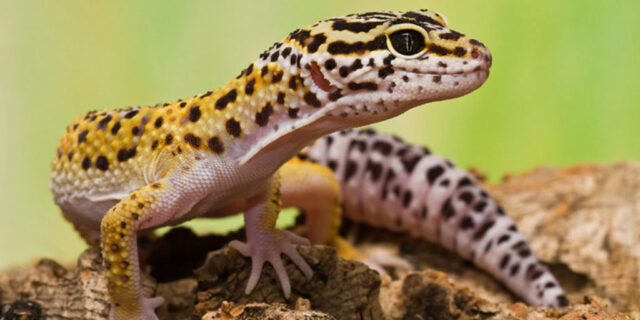
This article is tagged to be informative to veterinarians too. The information is not a substitute for advice from a veterinarian.
The health and wellbeing of our pets should be any keeper’s highest priority, but how do we know when our beloved pet Leopard gecko is unhappy or or not feeling well?
What is normal, healthy Leopard gecko behaviour?
Being nocturnal, most Leopard geckos will hide away while they sleep during the day. During the evenings though, pet Leopard geckos tend to be quite active, inquisitive and will walk around prowling slowly looking for something to eat. Some Leopard geckos might still be a bit shy, while others are explorers of note. They are considered hunters by nature and when potential prey is spotted they will stalk and often pause before striking.
Although equally happy on flat surfaces, their clawed toes allow them to climb on rocks and branches, which they often do, for exploration sake. Leopard geckos will often spend a little more time on raised surfaces, especially in heated areas, in order to absorb additional heat from their surroundings.
Some more bizarre, but normal, Leopard gecko behaviours include eating their own sloughed skin and being defaecatorial – meaning they often deposit their droppings in more or less the same area of their terrarium. From time to time you will see your Leopard gecko flicking its tongue and wiggling its tail. It is also not uncommon not to see Leopard geckos drinking water.
What is abnormal Leopard gecko behaviour?
Although considered normal in some newly obtained Leopard geckos, sudden changes, such as aggressiveness, hiding away, sleeping all night, trying to escape and not eating or not eating as frequently, should be considered alarming.
Some more serious abnormal behaviours include open mouth breathing, defeacating in abnormal places (all over, in the hiding area or not defeacating at all), spending all its time in one place, spending a lot of time in the water bowl and not showing interest in food.
Conclusion
Of course, there are many other ways and signs to determine whether a pet Leopard gecko is unwell, but closely observing its behaviour can be a great and even a fun way to make sure your little friend happy and healthy. Abnormal behaviour, or the lack of normal behaviour, should be considered to be serious and advice from a more experienced Leopard gecko keeper, herpetologist or your closest reptile friendly veterinarian should be sought.

